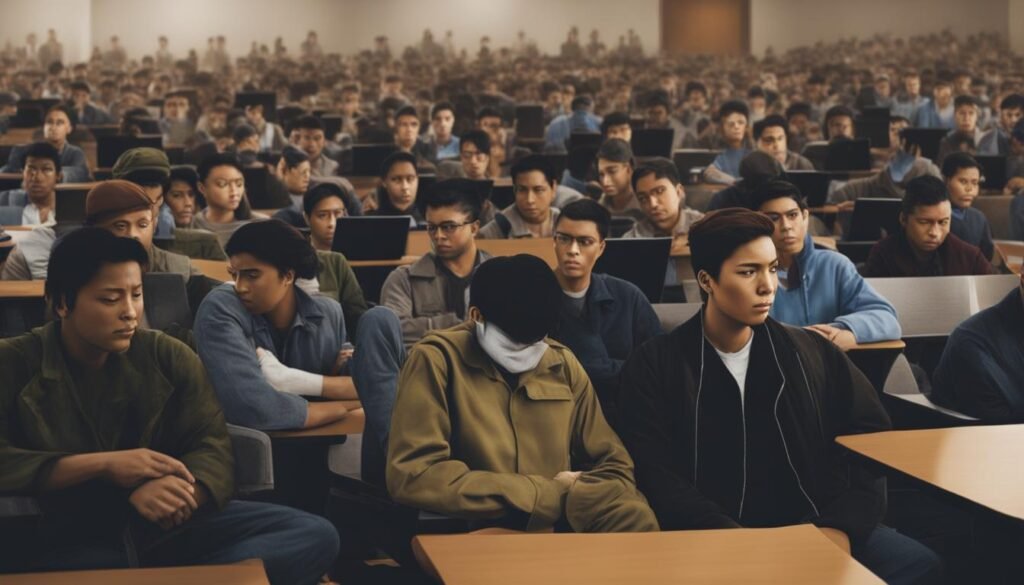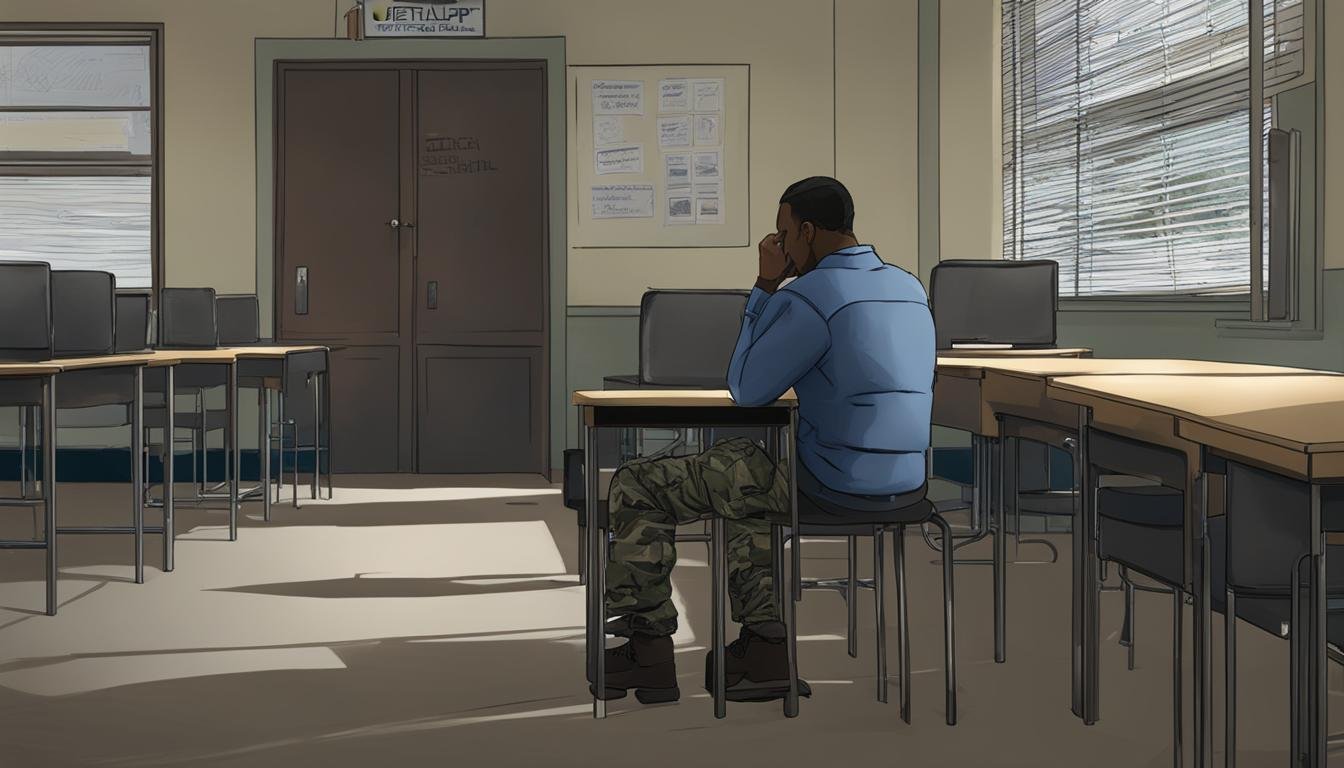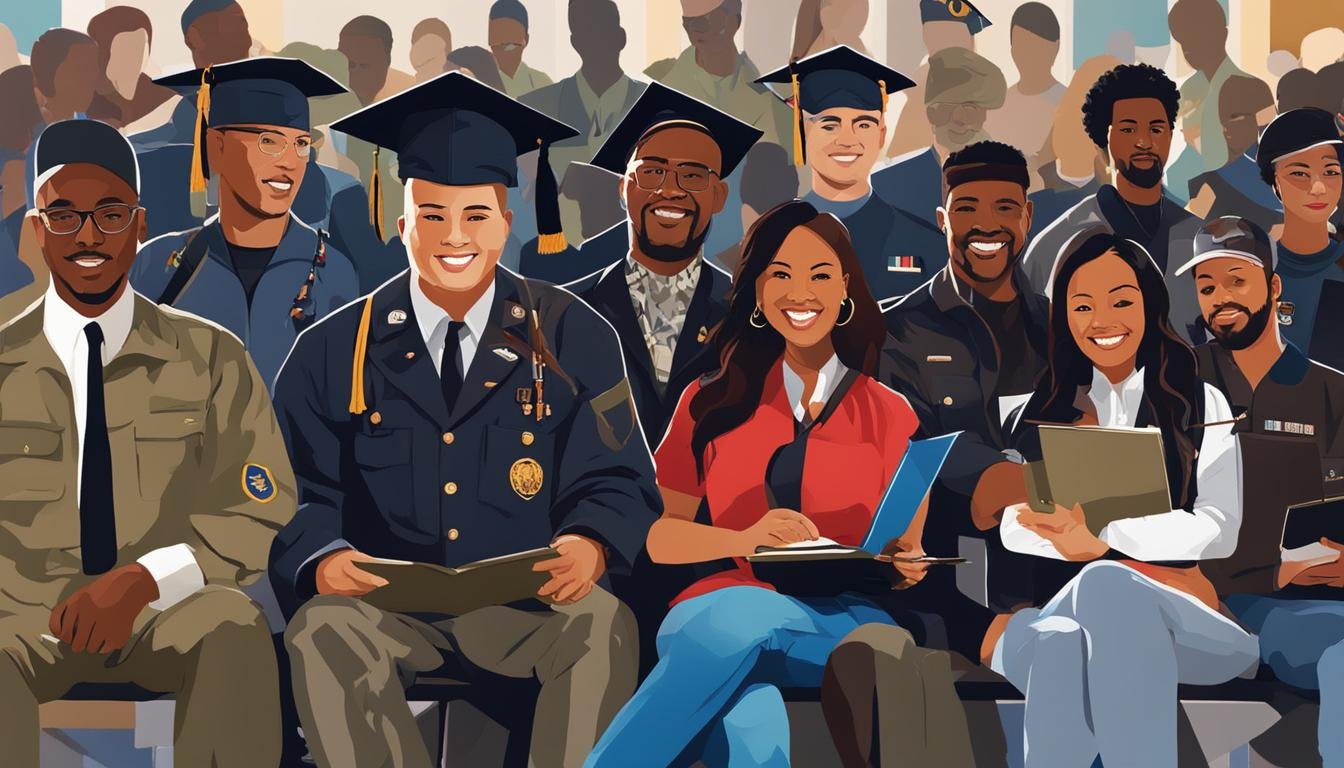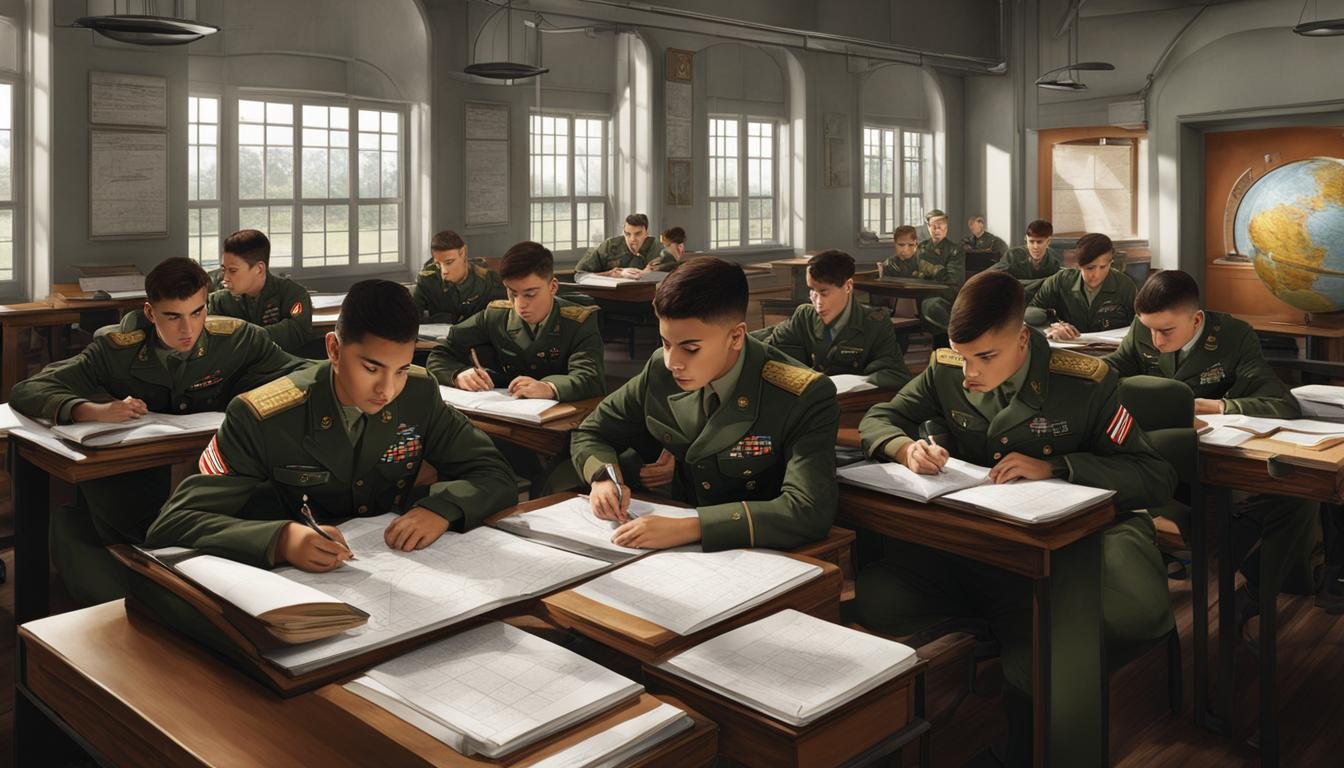As the number of post-9-11 service members attending college using U.S. government benefits continues to rise, it is crucial to evaluate the effectiveness of mental health support programs for veterans in colleges. Veterans in college face unique challenges when it comes to their mental health, with studies showing higher rates of health-risk behaviors and psychological disorders compared to their non-veteran peers. To ensure that veterans receive the necessary support and resources, it is essential to assess the quality of mental health support available to them in colleges.
Key Takeaways:
- Evaluating mental health support for veterans in colleges is crucial for ensuring their well-being during the transition back to civilian life.
- Veterans in college face unique challenges that can impact their mental health, including difficulties in adjusting to campus life and interacting with non-veteran peers.
- Psychological disorders, such as post-traumatic stress disorder (PTSD), anxiety disorders, and depression, are more prevalent among veterans in college.
- Comprehensive mental health support programs should address not only PTSD but also other psychological disorders, career counseling, academic support, and help in navigating available services.
- Colleges can utilize counseling and psychological screening tools to assess and address the mental health concerns of veterans in college.
Challenges Faced by Veterans in Higher Education

Veterans in college encounter a unique set of challenges that differ from those experienced by traditional students. The transition from military service to campus life can be particularly challenging for veterans, as they navigate a new environment and adjust to a less structured academic setting. Adapting to campus life involves acclimating to the social dynamics and cultural norms of the college community.
Interactions with non-veteran peers can also present difficulties for veterans in college. They may find it challenging to relate to their classmates, who may not understand or appreciate the experiences and perspectives of those who have served in the military. This sense of isolation can impede the development of a supportive social network, which is crucial for overall well-being and academic success.
Moreover, veterans in higher education are more susceptible to psychological disorders compared to their non-veteran counterparts. Conditions such as post-traumatic stress disorder (PTSD), anxiety disorders, and depression are prevalent among veterans in college. These conditions may arise from traumatic experiences during military service or the challenges associated with the transition to civilian life. Addressing these psychological disorders is vital for veterans’ mental health and their ability to thrive academically.
Struggles in College for Veterans
While attending college, veterans may encounter various struggles that can adversely impact their academic progress. Some of these challenges include:
- Difficulty adjusting to the less structured environment compared to the military
- Feeling alienated from non-veteran peers
- Managing time effectively and balancing academic responsibilities with other commitments
- Navigating the intricacies of the educational system, including understanding financial assistance and academic resources
- Overcoming stigma associated with seeking mental health support
These struggles can compound the stress and pressure that veterans already face, potentially leading to academic setbacks and adversely affecting their overall well-being. Recognizing and addressing these challenges is crucial for providing appropriate support and ensuring the success of veterans in higher education.
Psychological Disorders in Veterans
Psychological disorders, such as post-traumatic stress disorder (PTSD), anxiety disorders, and depression, are prevalent among veterans in college. These disorders can significantly impact their mental health and academic performance. It is important to acknowledge the unique mental health needs of veterans and provide them with comprehensive resources and support.
Research has shown that understanding and addressing the challenges faced by veterans in higher education is vital for providing effective mental health support. By recognizing the struggles they encounter and tailoring support services to their specific needs, colleges can create an environment that fosters academic success and overall well-being for veterans.
Table: Challenges Faced by Veterans in Higher Education
| Challenges | Impact |
|---|---|
| Adjusting to campus life | Difficulty acclimating to a new environment and social dynamics |
| Interacting with non-veteran peers | Feeling isolated and having difficulty relating to classmates |
| Managing academic responsibilities | Struggling to balance coursework with other commitments |
| Navigating the educational system | Difficulty understanding financial assistance and academic resources |
| Seeking mental health support | Experiencing stigma and challenges associated with accessing resources |
“The challenges faced by veterans in higher education are multifaceted, encompassing social, psychological, and academic aspects. By recognizing and addressing these challenges, colleges can provide the necessary support to ensure the success and well-being of student veterans.”
The Need for Comprehensive Mental Health Support for Veterans in Colleges
When it comes to supporting the mental health of veterans in colleges, it is crucial to go beyond just addressing post-traumatic stress disorder (PTSD). These individuals face a range of unique challenges and deserve comprehensive support that encompasses their various needs. From psychological disorders to career counseling and academic support, providing a holistic approach is essential to ensure the well-being and success of veteran students.
One of the key aspects of comprehensive mental health support is the use of screening tools specifically designed for veterans. These tools help identify and address the mental health concerns of student veterans, allowing for more targeted and effective interventions. For example, the Counseling Center Assessment of Psychological Symptoms (CCAPS) can provide valuable insights into the specific needs of veterans, enabling counselors to tailor their services accordingly.
In addition to screening tools, counseling services play a vital role in supporting veterans’ mental health in higher education. By offering specialized counseling services for veterans, colleges can ensure that these individuals receive the dedicated support they need. This can include individual therapy sessions, group counseling, and workshops that address topics relevant to veteran students.
Support for veterans in higher education extends beyond mental health services alone. It also involves helping them navigate the various resources and services available to them. Many veterans may not be familiar with the academic and administrative systems of colleges, making it essential to provide guidance and support in accessing financial aid, disability services, and other necessary resources.
| Comprehensive Mental Health Support for Veterans in Colleges | Mental Health Screening Tools for Veterans | Counseling Services for Veterans | Support for Veterans in Higher Education |
|---|---|---|---|
| Addresses psychological disorders, career counseling, and academic support | Allows targeted interventions based on specific needs | Offers specialized counseling services tailored to veterans | Provides guidance and support in accessing resources and services |
| Ensures holistic support for well-being and success | Identifies and addresses mental health concerns | Includes individual therapy, group counseling, and workshops | Helps navigate academic and administrative systems |
By prioritizing comprehensive mental health support, utilizing screening tools, offering specialized counseling services, and providing guidance in accessing resources, colleges can create an environment that fosters the well-being and academic achievement of veteran students. It is imperative that institutions recognize the unique challenges faced by veterans in higher education and actively work towards addressing them through comprehensive support programs.
How effective are mental health support services for veterans in colleges?
Many colleges provide specialized mental health services for veterans to address their unique needs. These support services offer counseling, therapy, and community resources to help veterans cope with the challenges of transitioning to college life. However, the effectiveness of these mental health services for veterans varies depending on the resources available at each institution.
Conclusion
Evaluating mental health programs for veterans in colleges is crucial to ensure that they receive the necessary support and resources during their transition back to civilian life. Veterans in colleges face unique challenges and have higher rates of psychological disorders compared to their non-veteran peers. Therefore, it is essential to provide comprehensive mental health support in higher education.
By implementing effective mental health support programs, colleges can address the specific needs of student veterans and provide them with the resources they require for their academic success and overall well-being. These programs should go beyond addressing post-traumatic stress disorder (PTSD) and include counseling services, career guidance, academic support, and assistance in navigating available mental health services.
Student veterans should have access to a range of mental health resources, screening tools, and counseling services tailored to their unique needs. By recognizing and addressing the challenges faced by veterans in higher education, colleges can create a supportive environment that promotes their mental health and overall success. It is through a comprehensive and integrated approach that we can truly provide the mental health services that student veterans deserve.



